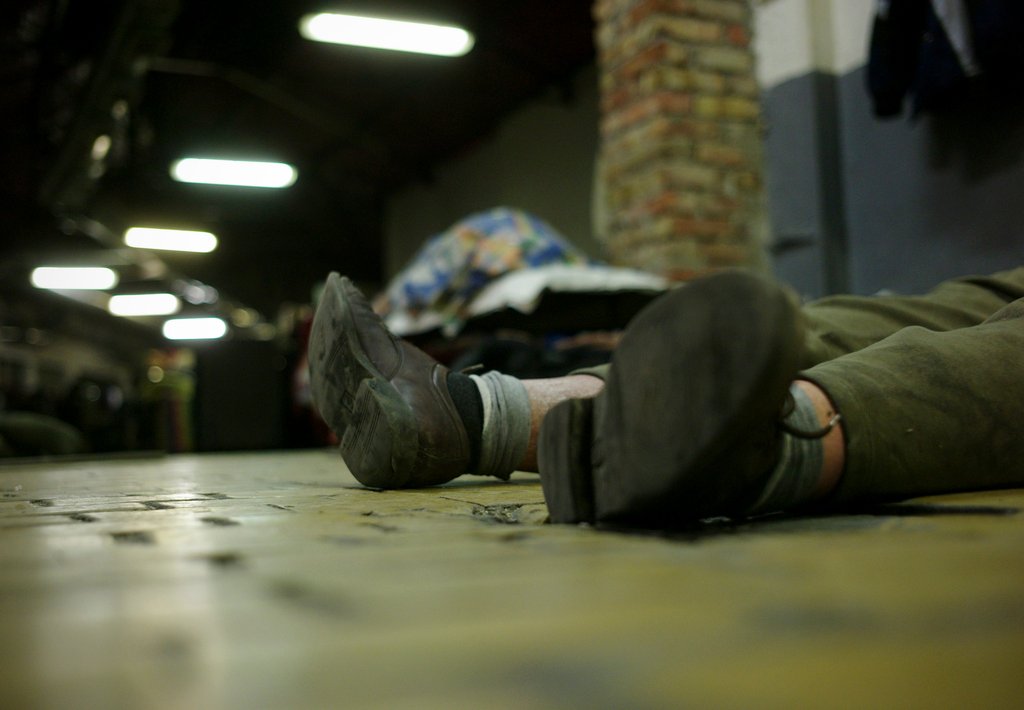On a Platform
It's a small group of us, just ten or so, old friends and spouses. Odd to be together again on the streets of one of the world's oldest cities, a place we all came to from elsewhere, met and worked together, and left. Thirty years it's been now, all of us heavier and grayer.
And richer, of course.
We were so young and so poor, eating whatever we could afford--wieners roasted on a fork over the gas stove, a loaf of bread in torn-off hunks, smeared with a little butter--because we weren't there for the money, or fame, or even the girls that thought life with an American beat anything they could come by any other way. We were there for them, for the people of the downtrodden, thrice-beaten country still laboring under the yoke of a foreign occupier.
She is richer, too, this country. The yoke is gone, and some of the country's bounty is being realized by the people that live there, instead of skimmed off the top like so much cream.
We're waiting for the tram, the ten of us. It's a perfect night, neither hot nor cold. The city is hauling itself home from work, sleek modern cars edging slowly by in the massed traffic. We chatter like magpies, excited to be together again after so long. One of us has eight children now. Another is a biochemist. A third runs European operations for a major corporation. Where once we saved money buying a monthly transit pass, now we think nothing of buying fifty single tickets. Off to dinner in the heart of the city. The bill will run into the hundreds of dollars. It's still not something we do often, but now we can, and feel no remorse. The joy of it infuses all our talk.
The tram pulls in, dinging as it goes. Doors clang open, and we climb aboard. I am last up the stairs, and as I go, the platform clears.
To one side, where I had not been able to see him before, sits a man behind a massive pile of crushed boxes laid on a rolling cart. I know without knowing that he is homeless, waiting and wanting something, sitting in a place he can be seen. His head lies in his hands, thin wisps of hair leaking between his fingers like sand running through an hourglass. He rocks gently back and forth, saying nothing. He has not even a cup out to catch the drips of kindness of passing strangers.
I should go back. I should let some of my heart pour out of my wallet, and onto him.
And yet it would not help. Today, maybe. Some. But what this man needs is so far beyond what I can give him--tomorrow I will leave again, and will it be another thirty years before I return? Who knows? Shall I pluck him from the gutter into the sun for one moment, and let him fall again, because my arm is not long enough to hold him from across an ocean?
The doors close. A voice harshly announces the next stop and the tram pulls jerkily from the station. The man stays motionless, eyes down to the concrete--I have never seen his eyes--as we slip past and off to another place. Yet I cannot leave him behind. Once he was five, with a mother that loved him. What would she say to me, seeing him and doing nothing?
My money goes instead to feed me and my friends. This time. And the food tastes wonderful.
But our talk turns to the old man on the platform. To others we knew then, and wonder about. We held them up, once, out of the muck and the grime, and some took wing, and some sank back again. We all feel it--we have to go find them, and lift them up again. The beginning of a plan forms. Electricity runs around the table. When we were here last, we were young and energetic, but weak in skill and lacking in power. What could we do now, with all we know and have become?
Don't we have to try?
It will mean we change again. It will mean less money, spending our lives on these people we love instead of on treasure. It will mean questions and opposition and outright scorn. We all know it. There will be no explaining what this place is to us, how the people run through our hearts like fish through a river.
No matter. I have to go back to the platform.
He won't be there. But he is always there, if someone is looking.
I must be someone, if I am anyone.

